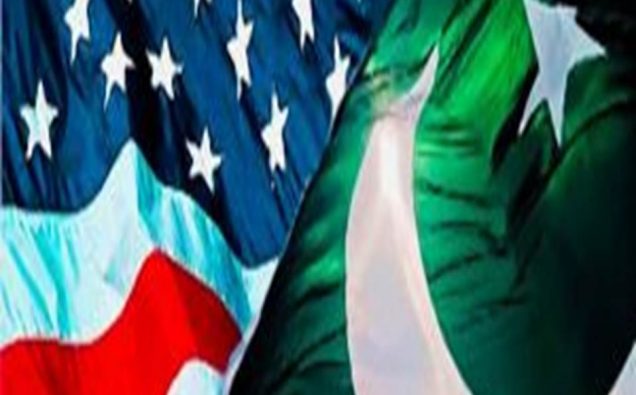
The U.S.-Pakistan relations have gone through several ups and downs since 2012 – the year until when Senator Richard Lugar, who passed away on Sunday, was a leading voice on foreign policy discussions on the Hill.
But a lot of the imperatives for close ties between the two countries remain the same, despite the reality that the context of the relationship is changing now with the interdependence between them diminishing due to U.S. military draw down in Afghanistan.
Yet, South Asian and Middle East watchers agree that nuclear-armed Pakistan remains as vital as ever to the regional peace and security.
In fact, Islamabad’s importance to the regional development has increased manifold due to more that $50 billion China Pakistan Economic Corridor that links China and Pakistan to the Gulf and enhances prospects for connectivity with Central Asia and beyond.
In the U.S. perspective, Pakistan can impact many regional developments like achievement of Afghan stability and India’s rise as a challenger to China.
Therefore, the importance of the relationship remains a constant in a changing scenario.
And so do, words of the former Indiana Republican senator on U.S-Pakistan relations.
Lugar’s mild-mannered but carefully-crafted approach to contentious international relations issues hold out a contrast with Washington’s current clamorous tone of conducting international relations.
The Trump Administration’s accusations vis-à-vis Pakistan allowing Afghan Taliban to operate from its territory, its cut-off of security aid for the country has been followed up with realization-cum- appreciation that Islamabad’s role would be integral to any Afghanistan peace effort is a case in point.
![Office of Senator Richard Lugar [Public domain]/Wikipedia](https://upload.wikimedia.org/wikipedia/commons/thumb/e/ee/Dick_Lugar_official_photo_2010.JPG/1920px-Dick_Lugar_official_photo_2010.JPG)
Office of Senator Richard Lugar [Public domain]/Wikipedia
But Lugar was consistent in his position as he took the long-term view. Among many of his legislative accomplishments was the 2009 Kerry-Lugar-Berman Bill – named after the lawmakers – which approved $7.5 billion in funds to aid Pakistan during the height of the Afghan war. The aid, though a subject of controversy, strengthened the bilateral cooperation on many levels.
As Washington Correspondent for the Associated Press of Pakistan, I covered several events where Lugar, former chair of the Foreign Relations Committee, and then Ranking Member, spoke including hearings on the Capitol Hill and functions that Pakistani-Americans hosted in D.C. I also had the opportunity to interview Senator Lugar.
It was pretty easy at that time to single out Pakistan for multiple troubles that the Obama Administration failed to address in Afghanistan. But unlike many others, Lugar would mix his calls for greater Pakistani counterterrorism cooperation with emphasis on assisting the county. The Republican senator was not alone to do so but the fact that he did it during the first term of Democratic president speaks about his keeping long-term interests ahead of short-term political scores. The bipartisanship he exhibited is becoming a rarity on the Hill.
He also deftly handled the deeply disturbing discovery of al-Qaeda chief Osama bin Laden in Abbottabad and the future of U.S.-Pakistan relations.
“Distancing ourselves from Pakistan would be unwise and extremely dangerous,” Lugar, ranking member on the Foreign Relations Committee, said at a May 5 hearing, days after the U.S. raid that took out the terrorist leader.
An estrangement in relations, he argued, would weaken U.S. intelligence capabilities, reduce America’s ability to prevent Pakistan-India conflict, and further complicate military operations in Afghanistan.
![Richard Lugar with then-Senator Barack Obama in August 2005 near Perm, Russia Credit: Senate Office of Richard Lugar [Public domain]](https://upload.wikimedia.org/wikipedia/commons/7/79/Lugar-Obama.jpg)
Richard Lugar with then-Senator Barack Obama in August 2005 near Perm, Russia Credit: Senate Office of Richard Lugar [Public domain]
Speaking at an event marking Pakistan’s Independence Day during the annual convention of Association of Physicians of Pakistani Descent of North America, Lugar also urged the U.S. policy on Pakistan should proceed in a bipartisan spirit.
“Even as U.S. foreign policy leaders contemplate how to improve bilateral relations with Pakistan, we must examine our own policymaking process, which frequently ranges into dysfunction and destructive partisanship,” he said.
His words hold true in the face of strident political debates.
Although, President Trump has climbed down from rhetorical posture toward Pakistan and praised relationships with PM Imran Khan-led Islamabad – in view of its support for efforts to kick-start an Afghan peace process –yet much work remains to be done to repair the ties and restore cooperative relations,
Additionally, U.S. relations with Pakistan will likely remain vital to American interests in a region, where it borders Iran, India and Afghanistan. China’s rise and investments in Pakistan have further elevated Pakistan’s importance.
In the same speech, Lugar had some thoughtful words for Pakistanis.
“Ultimately, Pakistan’s future will be determined by the Pakistanis,” he stated.
The former senator was not only the supporter of a strong U.S.-Pakistan relationship but Richard Lugar’s call for bipartisanship support on the issue and a consistent approach to holistic bilateral ties should help both Washington and Islamabad to work towards a mutually beneficial relationship.















